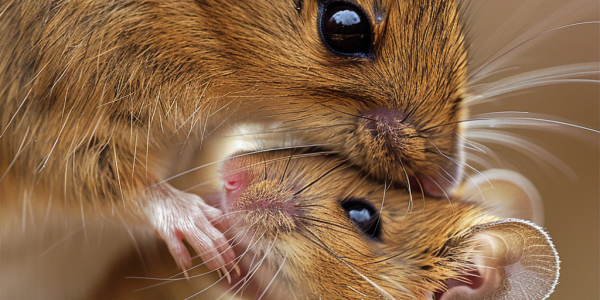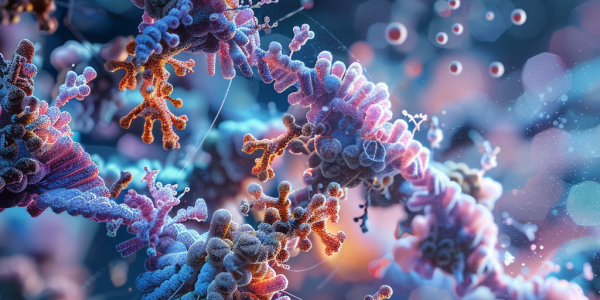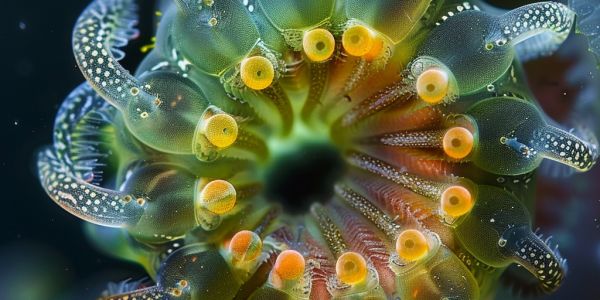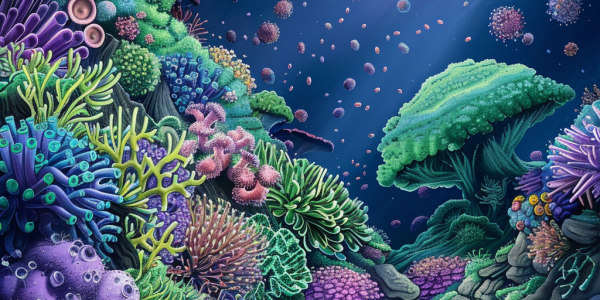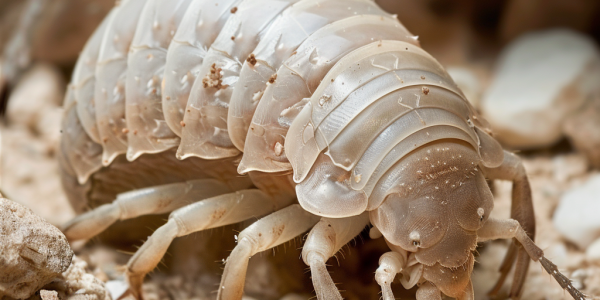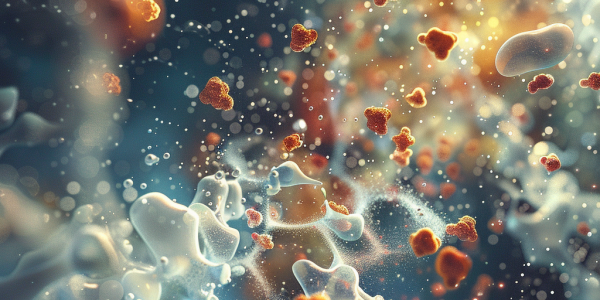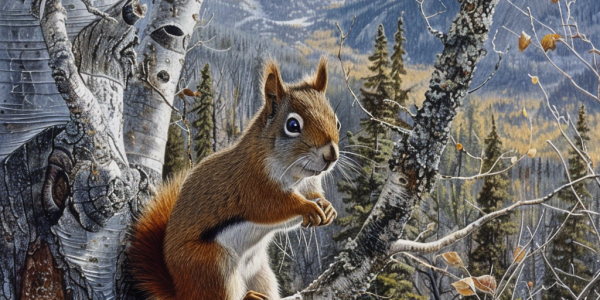New Hormone-Producing Cell Linked to Monogamous Behavior in Mice
A recent study published in Nature by scientists at Columbia University’s Zuckerman Institute reveals the discovery of a new hormone-producing cell in monogamous mice, shedding light on potential links to nurturing behavior and monogamy. The unique adrenal cell type produces 20⍺-OHP, enhancing nurturing behavior in mice and offering insights into human parental behavior and postpartum depression treatments. This groundbreaking research compares the mating behaviors of deer mice and oldfield mice, highlighting the role of hormones in shaping behavior and providing valuable insights into the mechanisms underlying monogamy.
AlphaFold 3: Revolutionizing Molecular Understanding with Advanced AI Model
AlphaFold 3, a cutting-edge AI model developed by Google DeepMind and Isomorphic Labs, revolutionizes the understanding of life’s molecules by accurately predicting the structure and interactions of proteins, DNA, RNA, and ligands. With a significant improvement in predicting protein interactions and practical applications in drug design, the model offers unprecedented insights into the biological world and pharmaceutical research. Collaborations with pharmaceutical companies are leveraging AlphaFold 3 to address real-world challenges in drug development, showcasing its potential to enhance patient care through innovative treatments.
Study Links rDNA Copy Number to Inflammation and Disease Risk
A recent study by Queen Mary University of London found a strong association between ribosomal DNA (rDNA) copy number and the risk of inflammation and diseases. The research, analyzing samples from 500,000 individuals, highlights the potential of rDNA analysis in identifying genetic predispositions to various health issues. The findings suggest that a broader genome analysis could lead to early disease detection and innovative treatment approaches, emphasizing the importance of leveraging biobanks for improved healthcare outcomes.
Genetic Control in Regenerating Worms Influences Symbiotic Algae, Study Finds
Researchers at Stanford University have discovered the genetic control that regenerating worms have over their algal partners. The study sheds light on the unique relationship between marine worms and symbiotic algae, highlighting the intricate communication mechanisms between the two species. This fascinating discovery opens up new questions about the nature of holobionts and the complex gene networks that connect them.
Exploring the Impact of Viruses on Microbial Ecosystems
Researchers are still working to fully understand the impact viruses have on microbial ecosystems due to their diversity and rapid evolution. A new approach to annotating viral sequences aims to bridge the gap in our understanding, revolutionizing the analysis of viral genetic data and enhancing global studies of viruses in diverse environments.
Research Reveals Role of Stochastic Variation in Developing Aging Clocks
Recent research by David H. Meyer and Björn Schumacher has highlighted the role of accumulating stochastic variation in developing aging clocks, providing valuable insights into the aging process and potential treatments for age-related conditions. Their study emphasizes the significance of accurate aging clocks in assessing interventions and preventive measures for age-related diseases, shedding light on the interplay between programmed and stochastic elements in the aging process.
Study Reveals Dietary Preferences of Desert Isopods
A recent study by researchers at the Hebrew University reveals the dietary habits of isopods, challenging assumptions and highlighting their impact on ecosystems. Isopods, often mistaken for bugs, play a significant role in desert environments, preferring macronutrient-poor soil crust over plant litter. This study sheds light on the complexity of isopods’ food selection and offers insights into broader ecological dynamics.
Groundbreaking Discovery: Peptides Found to Form on Cosmic Dust Particles, Challenging Previous Beliefs
Recent research challenges previous beliefs about the formation of life’s building blocks in space, as peptides have been found to form on cosmic dust particles even in the presence of water. Dr. Serge Krasnokutski and his team made a significant breakthrough by demonstrating that water molecules on dust particles do not hinder peptide formation. This groundbreaking discovery opens up new possibilities in astrobiology and astrophysics, suggesting that essential organic compounds like peptides could originate in space.
Breakthrough in Understanding Postpartum Depression and Anxiety
Recent research in Human Brain Mapping has identified biological markers for postpartum depression and postpartum depression with anxiety, offering new insights into diagnosis and treatment. Postpartum depression affects 12% of new mothers, with up to 70% also experiencing anxiety, making precise diagnosis crucial for tailored treatment.
Study Shows Early Life Experiences Impact Lifespan of Red Squirrels in Yukon
A recent study reveals that red squirrels in Canada’s Yukon territory face challenges that can impact their lifespan. Factors like food scarcity and harsh winters can reduce life expectancy by 14 percent. The research, based on data from the Kluane Red Squirrel Project, highlights the importance of early life experiences in determining longevity. Lead researcher Lauren Petrullo emphasizes the unique ecosystem of the Yukon region and the impact of food availability on squirrel populations.

